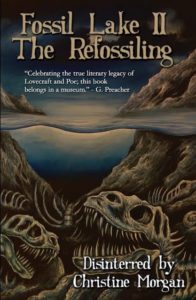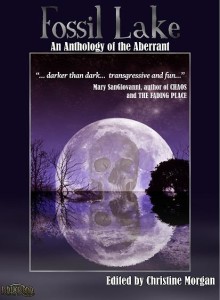Dark fiction can be lots of fun to read, and to write. Fiction provides a safe space to explore ideas and emotions that can be harmful if they were to be expressed in real life. Thanks to make-believe, you don’t actually have to hurt anyone to wonder about how hard it is to get away with murder, or to explore a fascination with some of the darker aspects of human nature, like manipulation, pain, addiction, and death.
There are some people for whom dark fiction is not their “thing,” and that’s okay. Entertainment reading should be entertaining–if the book’s more upsetting than fun, it’s probably not for you, and it’s fine to stop reading it.
When you write dark fiction, you can get some really weird comments. I’ve gotten some bizarre critique from people who are clearly not fans of the genre, yet feel compelled to tell me “what’s wrong with my story,” as though I will suddenly stop writing dark fiction and instead write something more to their tastes. Here’s a sampling:
 “By writing about this behaviour, you’re endorsing it in real life” is one of my favourite weird comments. Maybe my murderer thinks his actions are justified; maybe my torturer really digs her “hobby”. Just because the characters thinks their actions are acceptable/justified doesn’t mean I, the author, do. I’m describing the way the characters see their world, not the way I feel about them.
“By writing about this behaviour, you’re endorsing it in real life” is one of my favourite weird comments. Maybe my murderer thinks his actions are justified; maybe my torturer really digs her “hobby”. Just because the characters thinks their actions are acceptable/justified doesn’t mean I, the author, do. I’m describing the way the characters see their world, not the way I feel about them.
And if the murderer gets away with his crime, or the torturer doesn’t feel remorse? Again, those plot outcomes don’t equal “so I, the author, think the murderer deserved to get away with his crime, and the torturer did nothing wrong.”
There’s a certain satisfaction in seeing characters who do wrong receive punishment, just as there’s a satisfaction in seeing characters who do good be rewarded. But reducing all fiction to a morality play is very limiting. If your story’s about getting away with murder, there’s no tension if the reader doesn’t at least think escaping justice is possible. If your story’s about having to interact with a person utterly incapable of remorse, then “softening” the antagonist will only harm the plot.
In the end, I, as the author, can describe what my characters think, say, and do; but I have to trust my readers to be able to decide for themselves how they feel about those characters, and whether they agree with them or not. Nor will I be constrained to set my story in an idealized world where bad things always happen to bad people (and only good things happen to good people).
 “What if you give people bad ideas?” was one of my grandmother’s favourite comments. The implication was that if someone acts out the murder scene in your story, then the fault is on you, for “giving the person a bad idea”–not on them for actually committing real-life murder.
“What if you give people bad ideas?” was one of my grandmother’s favourite comments. The implication was that if someone acts out the murder scene in your story, then the fault is on you, for “giving the person a bad idea”–not on them for actually committing real-life murder.
People do learn things from fiction, and that’s why it’s important to provide realistic and honest portrayals. For example, for those of us who don’t do police work as a career or know those who do, a surprising amount of our “knowledge” comes from fiction. This is the sort of “background knowledge” we soak up without knowing when we consume fiction, and this can be harmful when we presume real life works like CSI.
But anyone who goes out and re-enacts a murder because they saw it on TV has got much bigger problems. Such a person is going to find an “inspiration” and an “excuse” somewhere–if not in a story, then from somewhere else (animals in nature, perhaps…)
“Why can’t everyone in this story be happy? Why do bad things have to happen?” is a comment from someone who’s looking in the wrong genre. If everyone in the story is happy, then there’s no conflict, therefore no plot, therefore no story.
It’s perfectly understandable for a reader to feel a little disappointed if they were hoping for a particular character to have a “good ending” and the story went somewhere else. It gets weird when the commenter elaborates, “No, I mean all through the story. Why does (character) have to be awful and cause so much trouble for everyone else? Why does there have to be a monster/a murderer/a villain?” If this conflict isn’t your jam, dark fiction isn’t your taste. This comment is like complaining about unrealistic events in a fantasy novel, or feeling dissatisfied when the couple get together at the end of a romance novel; it’s the convention of the genre, and if you don’t care for it, then you’re unlikely to enjoy the genre as a whole.
And if that’s the case? That’s fine. There’s lots of other fiction for you to choose from. But criticisms to the effect of “you’re writing in your genre, and your genre is horrible!” seem very bizarre to me when the story is Exactly What It Says On The Can.
About Mary:
